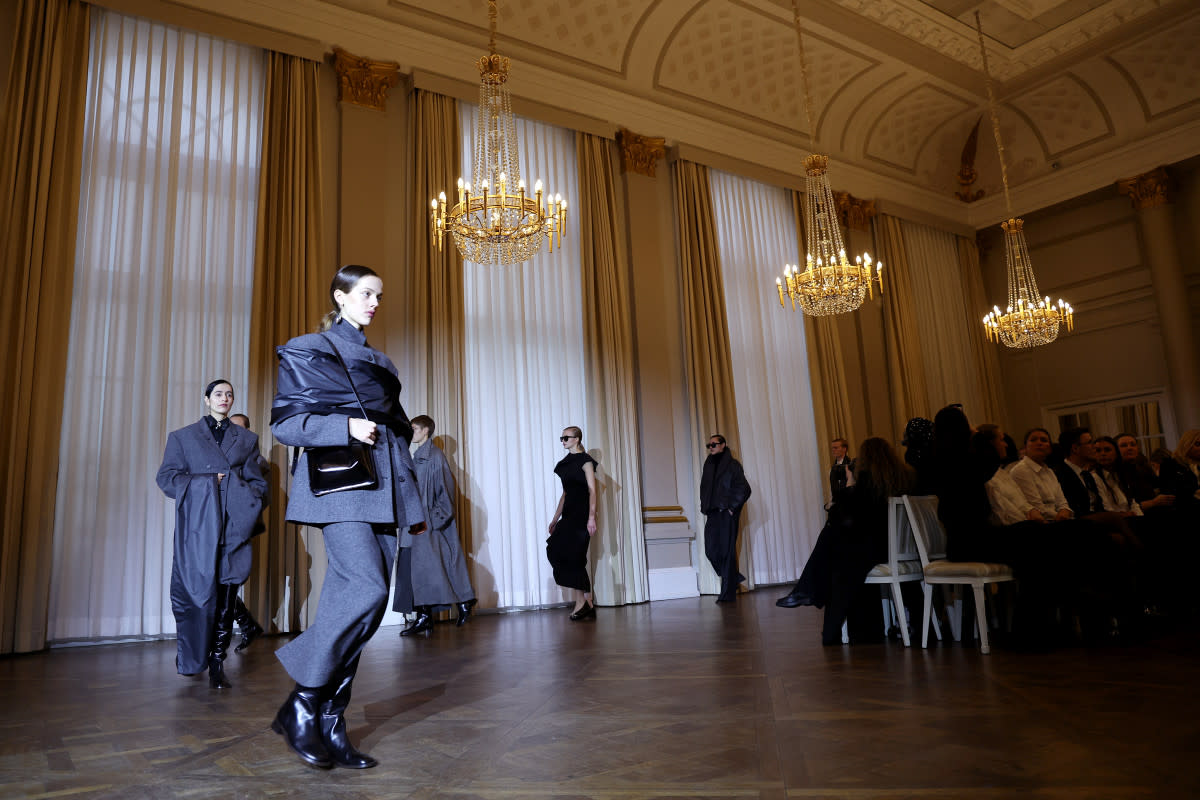Must Read: Copenhagen Fashion Week Bans Exotic Skins, 'Elle' Profiles Emily Weiss

Photo: Vittorio Zunino Celotto/Getty Images
- Oops!Something went wrong.Please try again later.
- Oops!Something went wrong.Please try again later.
These are the stories making headlines in fashion on Tuesday.
Copenhagen Fashion Week bans exotic skins
Copenhagen Fashion Week will ban collections using exotic skins or feathers beginning next year. This is the highest-profile fashion event to take a stance against the controversial materials thus far after regional fashion weeks like Melbourne, Helsinki and Stockholm made similar bans within the last few years. In addition to the ban on exotic skins and feathers, brands will be expected to show a larger portion of their products were made using more sustainable materials, that they are sourcing responsibly as well as designing for repairability and recyclability. {Business of Fashion/paywalled}
Elle profiles Glossier's Emily Weiss
Emily Weiss, Glossier's founder, opened up about how motherhood has changed her, the brand's expansion into Sephora and how its "You" fragrance could be the next Chanel No. 5, in an Elle profile written by Véronique Hyland. Despite often being referred to as a millennial brand, Weiss said that Glossier is multigenerational; she has her sights set on making it a 100-year brand. "I really can't think of another beauty brand, and I can actually think of very few lifestyle brands, that attract as much attention as Glossier does," Weiss told Elle. "People are drawn to our values; they're drawn to our leadership, our stores and our products, and they always have been." {Elle}
Secretary of Labor Julie Su on how the Triangle Shirtwaist Factory fire changed labor law
In March of 1911, the Triangle Shirtwaist Factory fire killed 146 people — many of whom were young immigrant women, some as young as 14 years old — in only 18 minutes. One of the bystanders watching the young workers jump to their deaths was Frances Perkins, the first woman to serve as United States Labor Secretary. Perkins was a driving force behind programs such as a nationwide minimum wage, health and safety regulations, restrictions on child labor and more; although there's still much work to be done when it comes to workers' rights, Secretary of Labor Julie Su wrote for Teen Vogue. Su reflected on experiences from her career championing workers' rights, from representing Thai garment workers forced to work behind barbed wire and under armed guard in the Los Angeles suburb of El Monte, to awarding $5 million in grants to increase the amount of women in the infrastructure, manufacturing and clean energy industries. {Teen Vogue}
Never miss the latest fashion industry news. Sign up for the Fashionista daily newsletter.

